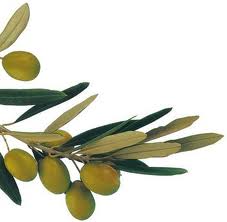The Benefits of the Olive, Olive Oil and its Leaves From Traditions of the Prophet of Islam
I found this information in a book on the "Natural healing with the medicine of the Prophet (peace be upon him and his family). The author is Mohammad Al-Akill. There are relatively few (I've only found two) books compiled on the traditions on the prophet or the Imams on the subject of natural healing that have been translated or written in English, the rest have to be searched for within the books of traditions.
The prophet of Islam has said "Use oil as food and as ointment for it comes from a blessed tree"
Olive oil is hot and moist in the first degree. The quality of the oil depends on the quality of the olives when pressed. The best is extracted from fully mature olives and when extracted from unripe ones it yields moderate and cold and dry temperaments.
Red olives yield oils of temperaments in between the above, while the oil of the black olives provide moderate heat and moisture.
Drinking Olive Oil
Drinking the oil of the olive helps to treat poisoning, digestion and bowel movements, and expels intestinal worms. The older the oil, the higher the degree of its heat and effectiveness in dissolving matters.
Besides the pressing method, olive oil also can be extracted through a water separation process, and in that case, its temperament is less hot, mild and more effective.
Soft Skin and Delayed Hair Greying
All kinds of oil softens the skin, and slow down the hair graying process. The salted water of preserved olives benefits skin burns, prevents blistering, strengthens the gums, and is good for herpetiform eruptions, and some allergic skin conditions (i;e; uticaria).
Benefits of the Olive Leaves
The leaves of the olive oil tree benefit infectious diseases including local skin inflammations when accompanied by fever (i.e. ambulant erysipelas>red skin), eczema, and ulcerations caused by rodent bites.
Chewing the leaves benefits the treatment of fungal eruption in the mouth (aphthous stomatitis) or on the lips, and is used to treat rodent ulcerations, general itching and skin eruption (cnidosis) as well as to control excess perspiration.
There is no wonder it was mentioned so many times in the holy Quran, I have not yet posted on this, but will in time.
After reading this information, I developed a deeper appreciation of the specifics that are used in the Quran. If we are called upon to focus on the olive or the tree or the leaf in order to understand a particular message then that is exactly the word that is used in that scenario. The same applies when comparing or contrasting different fruits or their plants.
I also found information on the uses of palm oil which is interesting because in the Quran, not only the olive is mentioned but also the palm and there were some traditions from our Holy prophet on the uses of different aspects of the palm which I will also post on but I have chosen to post in order of importance of each food since my goal is complete building of health.








Comments